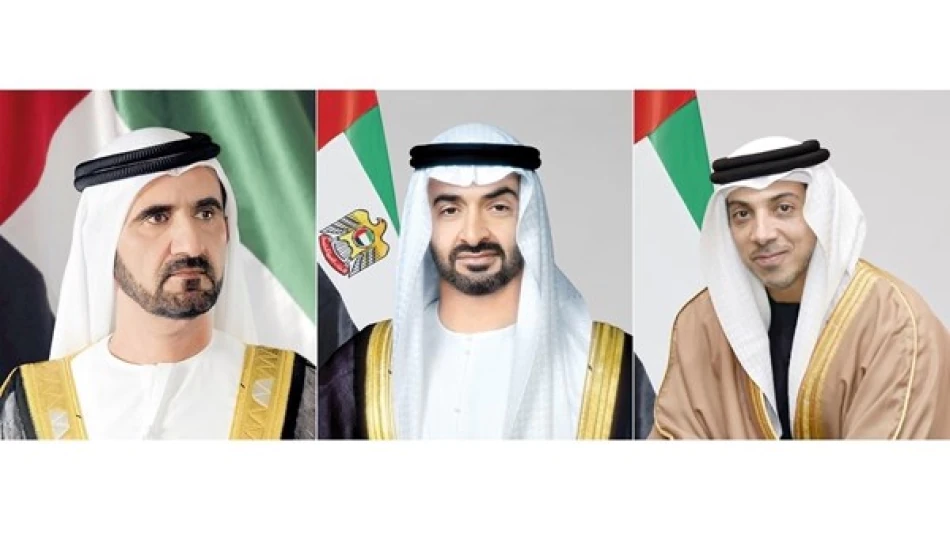
UAE Leaders Congratulate Tajikistan President on Independence Anniversary
UAE Leaders Strengthen Central Asian Ties with Tajikistan Independence Day Congratulations
The UAE's top leadership has extended formal congratulations to Tajikistan on its Independence Day, signaling the Emirates' continued diplomatic engagement with Central Asia's resource-rich nations. The coordinated messages from President Sheikh Mohammed bin Zayed Al Nahyan and other senior officials underscore Abu Dhabi's strategic pivot toward diversifying its geopolitical partnerships beyond traditional Western and regional allies.
High-Level Diplomatic Coordination
UAE President Sheikh Mohammed bin Zayed Al Nahyan sent congratulatory cables to Tajikistan President Emomali Rahmon marking the country's independence anniversary. The gesture was mirrored by Vice President and Prime Minister Sheikh Mohammed bin Rashid Al Maktoum, Dubai's ruler, and Deputy Prime Minister Sheikh Mansour bin Zayed Al Nahyan, who also extended similar messages to both President Rahmon and Prime Minister Qohir Rasulzoda.
This synchronized diplomatic outreach reflects the UAE's institutional approach to foreign relations, where multiple leadership figures reinforce the same strategic message to demonstrate unified commitment.
Central Asia's Growing Strategic Value
Energy and Trade Corridors
Tajikistan, despite being Central Asia's smallest economy, occupies a crucial position along emerging trade routes connecting China, Russia, and South Asian markets. The country's abundant hydroelectric resources and strategic location make it an attractive partner for the UAE's expanding infrastructure investments across the region.
The Emirates has been systematically building relationships across Central Asia, viewing these nations as alternative energy suppliers and investment destinations as global supply chains reshape following recent geopolitical tensions.
Economic Diversification Strategy
For UAE investors and sovereign wealth funds, Central Asian markets represent untapped opportunities in mining, agriculture, and renewable energy sectors. Tajikistan's vast mineral deposits, including gold, silver, and rare earth elements, align with the UAE's push to secure critical resource supplies for its growing manufacturing and technology sectors.
This diplomatic engagement follows similar UAE initiatives in Kazakhstan, Uzbekistan, and Kyrgyzstan, where Emirati companies have secured significant infrastructure and energy deals worth billions of dollars.
Broader Implications for Regional Dynamics
The UAE's courtship of Central Asian nations reflects a broader shift in Middle Eastern geopolitics, where Gulf states are hedging their traditional Western partnerships with expanded ties to Russia, China, and their regional allies. Unlike sanctions-constrained European and American companies, UAE firms can operate more freely in these markets.
This approach mirrors Singapore's successful strategy of maintaining positive relations with all major powers while positioning itself as a neutral hub for trade and investment. The UAE appears to be replicating this model on a larger scale, leveraging its geographic position and financial resources to become an indispensable partner across multiple regions.
For international businesses, the UAE's growing Central Asian network could provide alternative routes for accessing these markets, particularly as traditional European corridors face ongoing disruptions from regional conflicts and sanctions regimes.
Most Viewed News

 Layla Al Mansoori
Layla Al Mansoori






